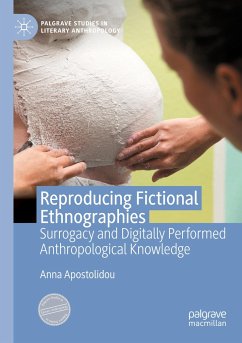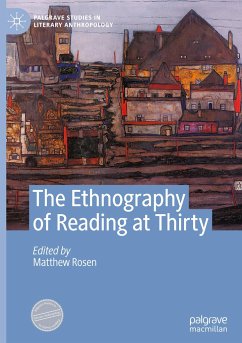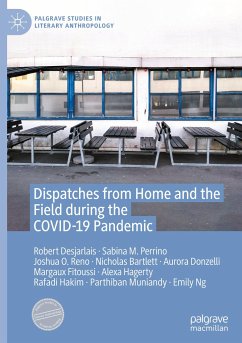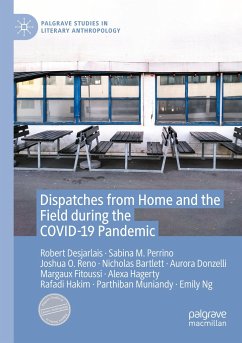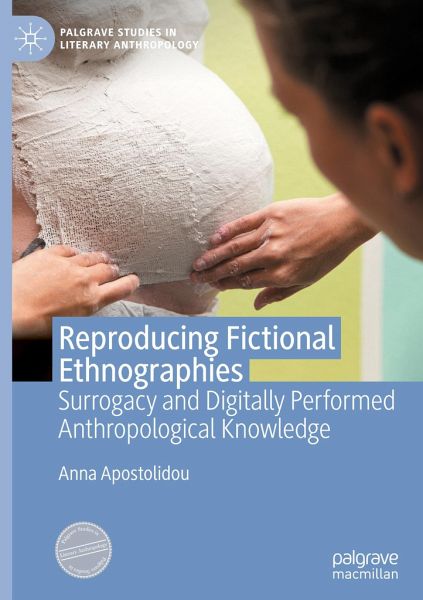
Reproducing Fictional Ethnographies
Surrogacy and Digitally Performed Anthropological Knowledge
Versandkostenfrei!
Versandfertig in 6-10 Tagen
98,99 €
inkl. MwSt.
Weitere Ausgaben:

PAYBACK Punkte
49 °P sammeln!
This book focuses on the example of surrogate motherhood to explore the interplay between new reproductive technologies and new ethnographic writing technologies. It seeks to interrogate the potential of fictional multimodality in ethnography and to illuminate the generative possibilities of digital artefacts in anthropological research. It also makes a case for the tailor-made character of ethnographic writing in the digital era, arguing that research quests and representational modalities can be paired together to develop unique narrative forms, corresponding to each particular topic's trait...
This book focuses on the example of surrogate motherhood to explore the interplay between new reproductive technologies and new ethnographic writing technologies. It seeks to interrogate the potential of fictional multimodality in ethnography and to illuminate the generative possibilities of digital artefacts in anthropological research. It also makes a case for the tailor-made character of ethnographic writing in the digital era, arguing that research quests and representational modalities can be paired together to develop unique narrative forms, corresponding to each particular topic's traits and analytical affordances.
Focusing on the intersections of assisted reproduction technologies and digitally mediated writing, this study casts light upon the value of the affective, the fictional and the 'real' in the anthropological research and writing of relatedness. Analyzing the situated knowledge of ethnographers and research interlocutors, it experiments with multimodalstorytelling and revisits the century-long debate on the affinity between an object of study and the possibilities for its representation. As the first attempt to bring together digital anthropology, fiction writing and the ethnography of surrogacy, this book fuses the genealogy of feminist critique on the orthodox, phallocentric, and heteronormative aspects of academic discourse with the input of digital humanities vis-à-vis troubling the conventional formal properties of scholarly writing.
Focusing on the intersections of assisted reproduction technologies and digitally mediated writing, this study casts light upon the value of the affective, the fictional and the 'real' in the anthropological research and writing of relatedness. Analyzing the situated knowledge of ethnographers and research interlocutors, it experiments with multimodalstorytelling and revisits the century-long debate on the affinity between an object of study and the possibilities for its representation. As the first attempt to bring together digital anthropology, fiction writing and the ethnography of surrogacy, this book fuses the genealogy of feminist critique on the orthodox, phallocentric, and heteronormative aspects of academic discourse with the input of digital humanities vis-à-vis troubling the conventional formal properties of scholarly writing.





